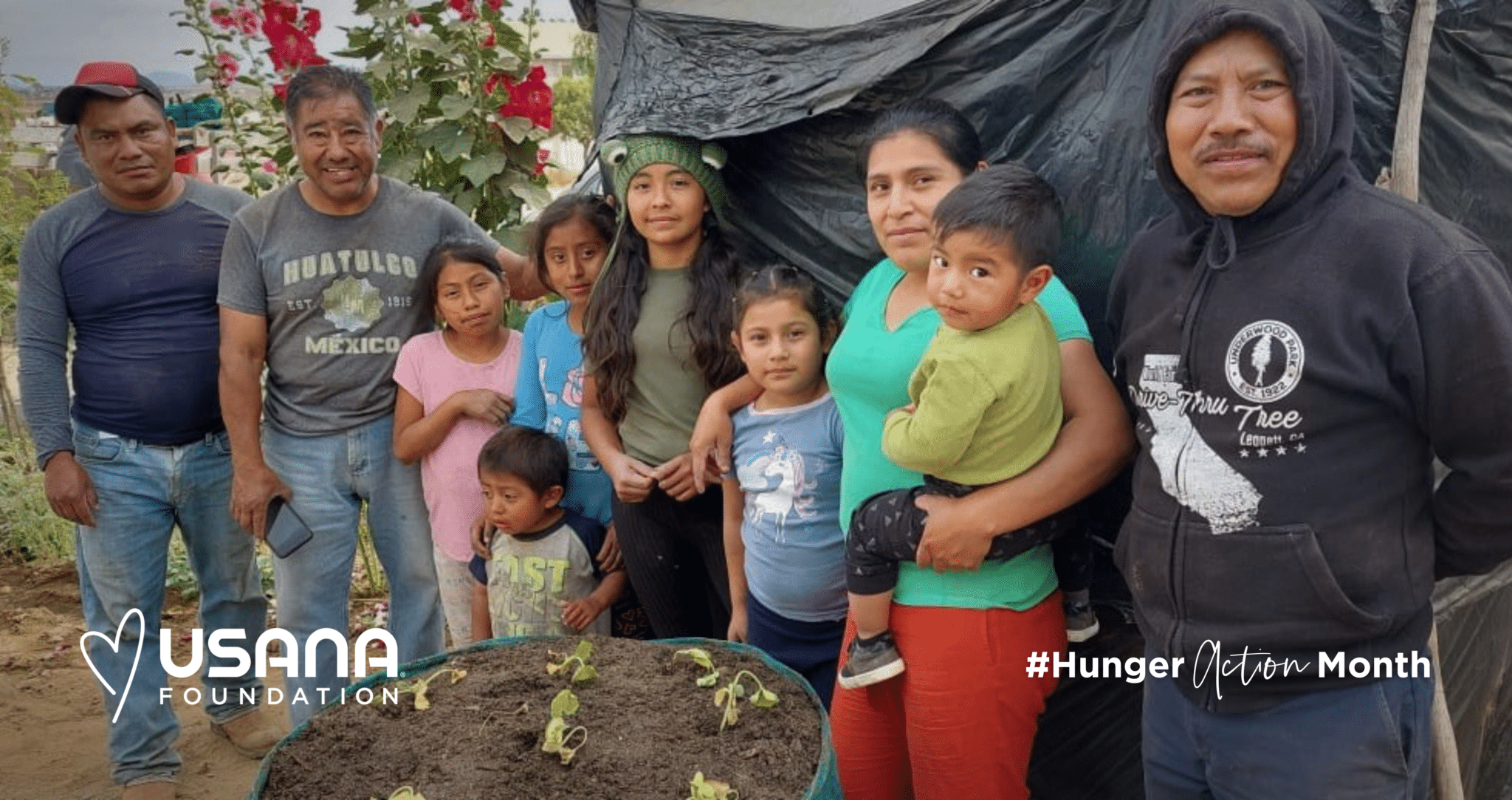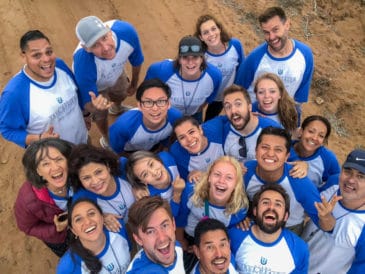Malnutrition remains a pressing global issue, affecting millions of lives, particularly in regions like North America and Latin America. Here, we discuss the root causes of food insecurity, highlighting the factors that contribute to hunger both globally and specifically in North America.
Also, we’ll explore the pivotal role that the USANA Foundation’s Garden Tower community program plays in addressing these challenges and its efforts to fight malnutrition on a global scale.
So, what causes food insecurity in the world—specifically North American countries?
Food insecurity stems from a combination of complex factors, including poverty, lack of access to nutritious foods, political instability, climate change, and economic disparities. The unequal distribution of resources and opportunities often exacerbates the issue, leaving vulnerable populations struggling to meet their basic nutritional needs.
Hunger isn’t exclusive to developing nations; it also affects North American countries due to a range of factors such as income inequality, limited access to fresh and affordable food in certain areas (often referred to as “food deserts”), unemployment, and unexpected economic downturns.
Remote First Nations communities in Canada continue to struggle with a lack of access to healthy and nutritious food, despite the wealth of their nation. Suburban and urban communities throughout the US also struggle with proper access to education and nutrition that helps to support families in times of need.
How can you help fight food insecurity in Latin America?
Global hunger is a multifaceted issue driven by a combination of socio-economic, environmental, and political factors. Poverty, unequal access to resources, political and economic conflicts, and inadequate infrastructure all contribute to the persistence of hunger on a global scale. The USANA Foundation’s Garden Tower community program offers a unique approach to combat food insecurity in Latin America, particularly in Baja Mexico and Guatemala.
By focusing on rural agricultural communities, our Foundation aims to create networks of support that emphasize sustainable agriculture and food production. Through education, resource provision, and community engagement, individuals can gain the tools and knowledge needed to improve their own food security.
To effectively combat global malnutrition, the USANA Foundation relies on the collaboration of dedicated volunteers. By partnering with us, you can contribute to building Garden Tower communities, sharing knowledge about sustainable farming practices, and empowering individuals to break free from the cycle of malnutrition.
Help us fight global hunger and malnutrition
You can play a vital role in the fight against world hunger by supporting organizations like the USANA Foundation. Whether through donations, volunteering, or raising awareness, your contributions can make a significant impact in providing nutritious food and resources to those in need.
USANA Health Sciences is not only committed to promoting health and wellness but also to giving back to communities in need. Through initiatives like the Garden Tower program, USANA demonstrates its dedication to addressing the root causes of malnutrition and making a positive impact on global food security.
The USANA Foundation’s unwavering commitment to fighting global malnutrition shines through our Garden Tower community program. By targeting rural and indigenous communities and providing them with the tools, resources, and knowledge they need, the Foundation is actively working to alleviate hunger and improve overall nutrition on a global scale.
As we delve into the intricate web of malnutrition, hunger, and food insecurity, the USANA Foundation’s Garden Tower community program stands out as a beacon of hope. Through our strategic efforts and community-focused approach, the Foundation showcases the power of collective action in creating a world where nutritious food is accessible to all, regardless of their geographic location or socio-economic status.
By supporting initiatives like these, we move one step closer to a future free from the silent killer of global malnutrition.









